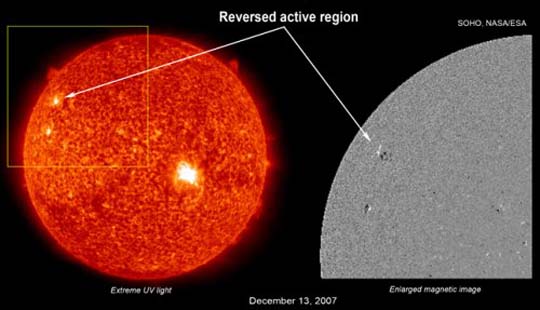“There are a number of indicators that suggest Solar Cycle 24 Maximum
should be a big cycle.”
- David Hathaway, Ph.D., NASA

January 10, 2008 Huntsville, Alabama - One month ago on December 11, 2007, a patch of magnetism on the sun was declared by NASA to be the first official sunspot of the new Solar Cycle 24. The spot was in a high-latitude on the sun with reversed polarity from the previous Solar Cycle 23 that has been in minimum for a long time. The sun has had a blank face without any sunspots for days and weeks at a time. But from now forward to 2012, sunspots should start appearing again all over the sun, leading up to what NASA astrophysicist, David Hathaway, Ph.D., thinks will be one of the more intense solar maximums on record. Dr. Hathaway is the Solar Physics Team Leader at NASA’s Marshall Space Flight Center in Huntsville, Alabama. He received his Ph.D. in astrophysics from the University of Colorado in Boulder in 1979.
Click here to subscribe and get instant access to read this report.
Click here to check your existing subscription status.
Existing members, login below:
© 1998 - 2025 by Linda Moulton Howe.
All Rights Reserved.

